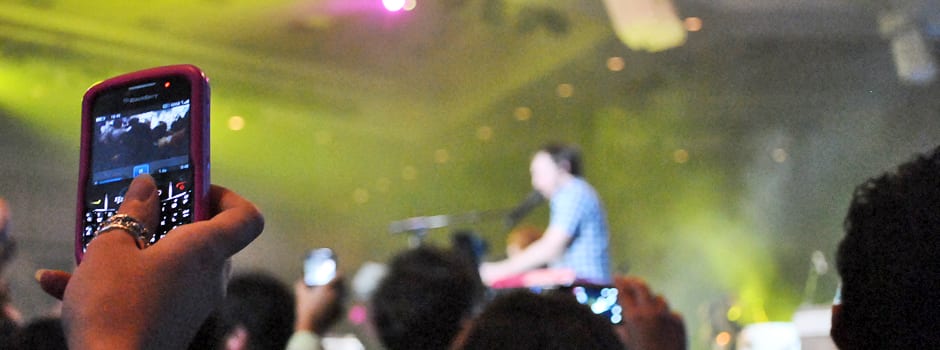Your Camera is Ruining Your Memory
A new study from Fairfield University finds that photographing a moment makes it harder for you to remember it.
 Credit:
Credit:
Products are chosen independently by our editors. Purchases made through our links may earn us a commission.
These days, more and more musicians are actively discouraging the use of cameras and mobile phones at their concerts. While it might seem counterintuitive for artists to restrict the use of devices that help create buzz and drive the artist's image, many musicians would prefer their fans to actually enjoy the show, rather than worrying about recording shaky video and awful audio for posterity.
The prioritization of the camera over the experience is now common when celebrating everything from childhood milestones, to family holidays, to everyday dinners—all thanks to the meteoric rise of Instagram and its ilk.
Obviously, there's a distinct line between watching a your child's first steps or a live concert through your iPhone screen and snapping the occasional photo or a few seconds of video. But the problem is pervasive enough that a few artists have gone so far as to ban phones outright.
Besides the potentially distracting nature of glowing cellphones at eye level, a recent psychology study claims that the act of photographing has adverse effects on the photographer's memory. In Fairfield University's experiment, subjects were guided through an art museum, one group taking photos, the other simply making memories. Interestingly, the participants who photographed the exhibits recalled fewer details and museum characteristics than the others.
While it isn't particularly surprising that concentrating on taking a photograph might shove actual thoughts about the subject to the backburner, the study did find one interesting conclusion: When the participants zoomed in on specific areas of their subjects, their memories of the entire exhibit were just as good as those of the camera-deprived guinea pigs. (Though Fairfield's study didn't cover it, we have to imagine the increased focus on composition also resulted in better photographs.)
While it's ironic that the act of recording an event actually impairs our memory, the problem isn't photography itself—it's how we interact with technology. Without even thinking about it, we hand a machine the responsibility for recording our memories, not realizing that a photo just isn't the same thing.
So before you whip out the camera to document your kid's birthday, a visit to MoMA, or your favorite band's concert, take a moment to make sure all your senses are fully engaged.
Via: Fairfield University
[Hero image: Flickr user "jgoge123"]
